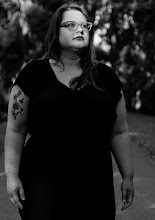22 January 2015
Not Mary Janes
19 January 2015
Selma and the Long Road Ahead
Yesterday, I saw the movie Selma, which I highly recommend. The crowd was a mix of races, and as we were leaving, an older white man ahead of me commented, "I'm glad things aren't like that anymore." The two young black women behind him laughed.
Everywhere we turn, we witness the truth unfolding, and some of us are too desensitized to see it: Racism has never left this country; actually, racism is alive and well all over the world. I could see Dr. King protesting about Ferguson and New York, protesting about Nigeria. When I see "good people" fail to acknowledge current racism, like the probably well-meaning man I just quoted, I see Dr. King's face and Malcolm X's face in my mind and wonder how they would react.
Because the truth is that MLK's dream is far, far from realized. He's been sanitized and canonized, but in reality, he was radical. He was seen as a threat. His dreams are still a threat to this country in particular, because acknowledging systemic racism in America has yet to happen. It's true that we don't segregate blacks and whites in our physical spaces, but we sure as hell segregate them in our minds. Think about our discussions of rioting and looting. Think about our discussions of thugs and criminals. Even "good people" on Facebook, well-intentioned people, continue to Other black folks and chastise their behavior. Even "good people" on Facebook, well-intentioned people, are using terms like "sand n****rs" to describe folks whose mosques were bombed after Charlie Hebdo. These aren't conservatives talking, either. These people identify as progressive. Today, these people talk about MLK in fluffy, reflective ways. And yet they are ignorant to their own racism. They fail to acknowledge how their behavior perpetuates systemic racism. They fail to see that their "scolding" of folks of different races makes them a racist. None of us wants to defer MLK's dream, and yet all of us are actively deferring it.
After seeing Selma, I'm sure that the person who said, "I'm glad things aren't like that anymore," truly thinks that we live in a society where Dr. King's dream has been realized, but the young women who laughed -- a dark, knowing laugh -- understand the truth.
